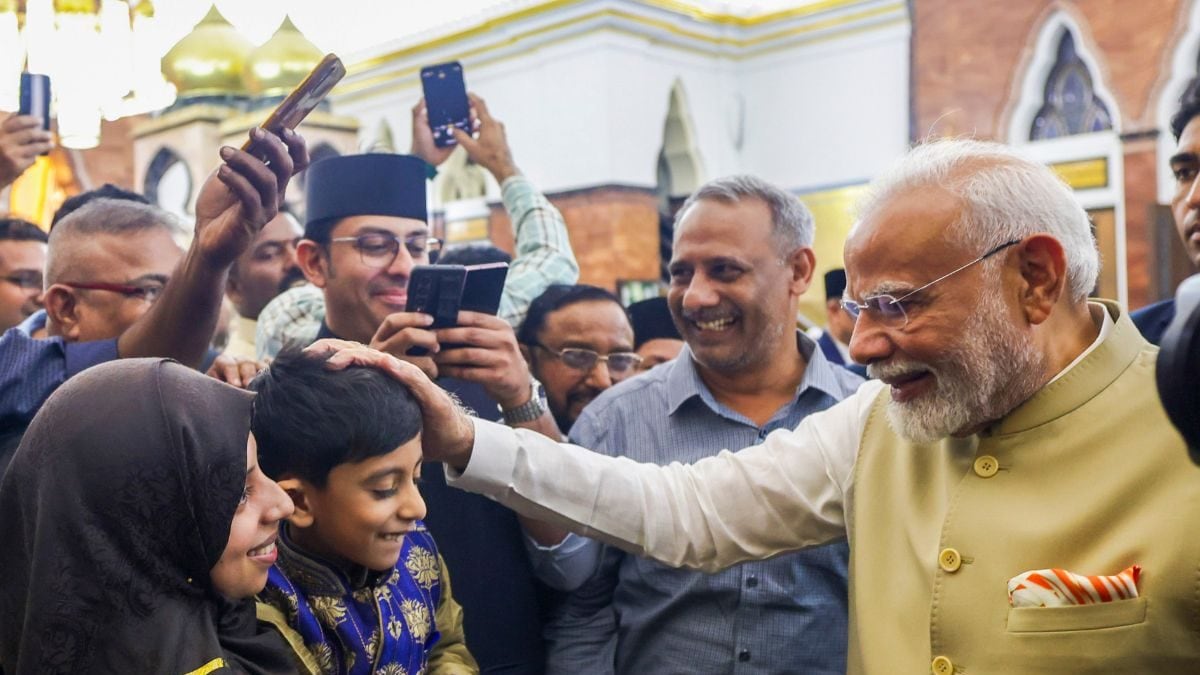Brunei is an important partner in India’s ‘Act East’ Policy and its vision of the Indo-Pacific. PM Modi, who is on an official visit to the country, will strengthen cooperation in space, energy, defence and trade among others
Brunei is an important partner in India’s ‘Act East’ Policy and its vision of the Indo-Pacific. PM Modi, who is on an official visit to the country, will strengthen cooperation in space, energy, defence and trade among other sectors

Prime Minister Narendra Modi landed in Bandar Seri Begawan, the capital of Brunei Darussalam, for a state visit on September 3. This is the first-ever bilateral visit by an Indian prime minister to Brunei, and underscores a milestone in the 40-year diplomatic relationship between the two countries.
PM Modi will hold talks with the country’s top leadership and discuss ways to boost bilateral ties.
He will also meet Sultan Haji Hassanal Bolkiah and other esteemed members of the Royal family. As a special gesture, the PM was received in Brunei Darussalam by the Crown Prince, Haji Al-Muhtadee Billah.
The prime minister inaugurated a new Chancery of the High Commission of India and visited the Omar Ali Saifuddien Mosque.
PM Modi’s visit will further strengthen India’s cooperation with Brunei in all existing sectors, including defence cooperation, trade and investment, energy, space technology, health cooperation, capacity building, culture and people-to-people exchanges and explore avenues for cooperation in newer sectors, the Ministry of External Affairs press release stated.
Why Brunei is Important for India
Brunei is an important partner in India’s ‘Act East’ Policy and Indo-Pacific Vision. The ‘Act East’ Policy was formulated as the next step to the ‘Look East’ Policy which originated in the 1990s. The policy seeks to make India deepen its relations with other countries like those in Southeast Asia.
PM Modi had said that the 10-member ASEAN (Association of Southeast Asian Nations) was the “central pillar” of India’s Act East policy. Brunei, which is also an ASEA member, is one of the largest producers of oil in the region.
In the key area of maritime security, India-Brunei’s cooperation is seen as part of Security and Growth for All in the Region (SAGAR). Brunei presents investment opportunities, particularly in enhancing its deep-water Muara port, which could offer India geostrategic and geoeconomic benefits.
PM’s visit could also bolster the bilateral trade, defence and cultural exchanges. Bilateral trade reached $286.2 million in the fiscal year 2023-24. Defence cooperation remains a cornerstone of the relationship, with regular exchanges, training, and joint exercises.
India and Brunei signed an agreement in August 1997 for setting up of Indian Space Research Organisation (ISRO)’s TT&C station in Brunei. This was established in 2000 and has been functioning since. Its geographical location near the equator makes it an attractive site for satellite ground stations and space monitoring infrastructure.
The cooperation agreement with Brunei is the latest in several arrangements India has made with other countries to establish satellite TT&C ground stations, as well as receiving stations for Indian Earth observation and remote sensing satellites, according to Spacewatch website.
About Brunei Darussalam
The population of Brunei is roughly 450,500, according to official estimates. Almost two-thirds of Brunei’s population are classified as Malay, which comprises a number of indigenous groups including the Dusun, Belait, Kedayan, Murut, and Bisaya (Bisayah).
A tenth of the population is Chinese. The rest are non-Malay indigenous people like the Iban (or Sea Dayak), are of South Asian descent and temporary workers from Asia and Europe.
According to the MEA, the first phase of Indians arriving in Brunei started with the discovery of oil in the 1920s. There are at present around 14,000 Indians residing in Brunei. “The contribution of Indian doctors and teachers to the growth and development of Brunei’s healthcare and education sectors has been well acknowledged,” it added.
Though the official language of Brunei is Malay and English is a second major language. Many Chinese citizens speak local dialects and learn Mandarin in school.
The population is mainly Sunni Muslim, though the Chinese follow Buddhism, Daoism, Confucianism, or Christianity. Some indigenous peoples are Christian, while others have their own religions.
Brunei’s more than one-fifth of population is under the age of 15 while half of its people are under the age of 30.
Who is Brunei’s Monarch?
Brunei’s Sultan Haji Hassanal Bolkiah was crowned as the 29th Sultan of Brunei on August 1, 1968, making him the longest-reigning monarch in the world at present. The Sultan of Brunei remains on the list of wealthiest individuals. His estimated net worth is around $30 billion.
According to TIME magazine, the Sultan reportedly owns more than 600 Rolls Royce, and his house – Istan Nurul Iman, the world’s largest palace – cost over $350 million.
According to an article in the BBC, “He is one of the world’s richest individuals and in a country where the standard of living is high, appears to enjoy genuine popularity amongst his subjects. More recently however, he has faced criticism over the introduction of Islamic Sharia law in the country.”
He also is among the few monarchs with absolute power over his nation. In 1984, Sultan Bolkiah appointed himself prime minister. In 1991, he introduced the Malay Muslim Monarchy which refers to the monarch as the “defender of the faith”.
PM Modi met Sultan Bolkiah on the sidelines of 25th ASEAN Summit in Myanmar in November 2014, and at the 2017 East Asia Summit in the Philippines.
In 2014, Brunei became the first nation in East Asia to adopt Sharia law, which prescribes stoning for adultery. In 2019, it introduced death punishment for gay sex.
- Location :
- First Published:











